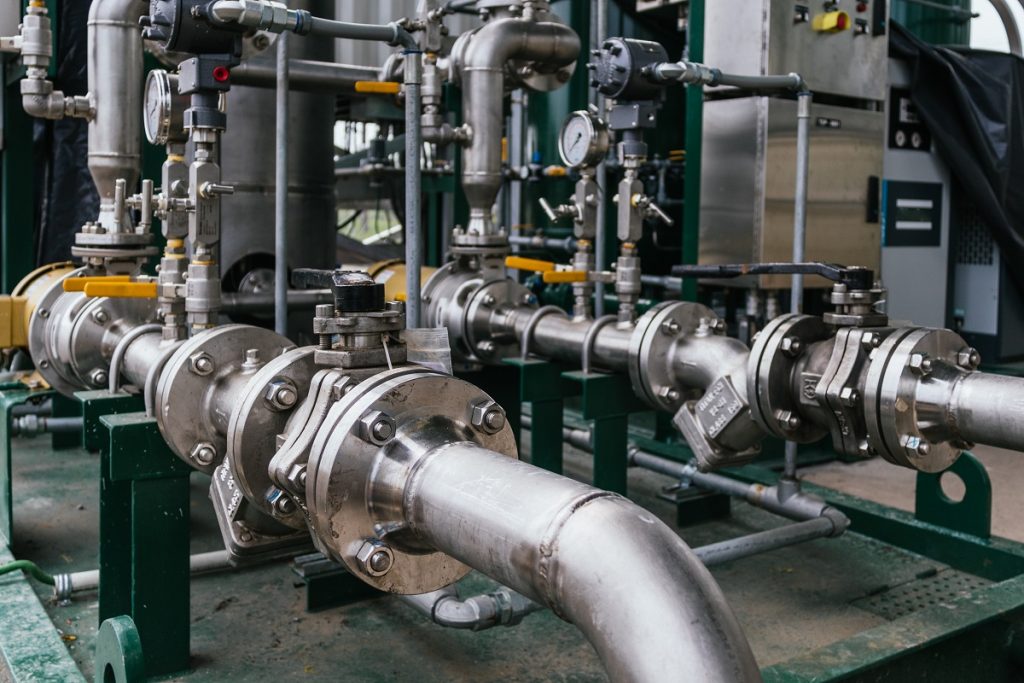What are the tips to maintain steel pipes?
- Conduct regular inspections
- Prevent metal to metal contact
- Minimize pipe movement
- Clean and polish pipes
- Make minor repairs
- Know your pipes’ life expectancy
- Choose quality materials
Steel pipes are used for many different applications. They carry heavy loads in concrete pile casings, protect water, gas, and electricity lines, and even support people in scaffoldings. These metal products undergo wear and tear as time goes by. To slow down that process, we listed down some tips to maintain steel pipes. Read on!
Conduct Regular Inspections
The first way to prevent damages from getting bigger is to conduct regular and scheduled inspections in your building. Many owners skip this step and see themselves in a pinch when leaks, corrosion, and breakage happens. This can lead to accidents and costly replacement of parts when it could have been prevented.
To avoid these emergencies, we recommend you to conduct scheduled inspections. The timing will depend on what application you’re using a steel pipe for. Consulting with your supplier may be the best way to know this. You should look for any signs of cracks and holes in the steel pipes. This will make it easier for the environment to accelerate corrosion which can eat away at the pipe.
Prevent Metal to Metal Contact
When you’re first installing your pipes, make a strategic plan on how to place each one to ensure that contact with other types of metals is minimized. Contact with other metals can lead to damages such as scratches and deformation if it occurs for a long time. Metal to metal contact can also lead to corrosion. You can do this by adding materials that do this specific job.
Minimize Pipe Movement
To reduce the damage to your steel pipes, it is a good idea to keep them fixed using the proper restraints such as clamps and bolts. This will keep it in place and reduce the impact of pressurized elements such as water. It also keeps your pipes from crashing into each other. Other types of materials can do this while still allowing some movement.
Clean and Polish Pipes
It is important to make it a priority to maintain cleanliness in your building. If you can prevent the buildup of dirt and grime to the pipes, that is even better. Train your people to be mindful of their surroundings and always keep the place clean and hygienic.
To properly clean your pipes, you can consult with your supplier on what tools and chemicals are safe to use inside and outside it. This will prevent accidental damage to your steel pipes. For example, steel wool is an abrasive tool that can scratch the surface.
Do not forget to lubricate your steel pipes after cleaning. Most people recommend using olive oil but confirm this with your supplier too.
Make Minor Repairs
If you see minor damages early, there are some first-aid repairs you can do to your pipes. You can seal holes and cracks with plumber putty or specialized bandages and clamps. This can serve as short-term repairs while you wait to schedule a professional consultation, but it can serve you for the long term if you only have minor damages.
Know Your Pipes’ Life Expectancy
If you have old pipes in your building that are already severely damaged, it may be a good time to have them replaced. Damaged pipes can pose risks such as water poisoning and injury. Severely corroded pipes can contaminate the water and can also break apart easily. If neglected up to this point, other metal parts may be also already severely damaged.
When you’re first installing pipes in your building, it is recommended to ask your supplier about the expected life span. If you take care of your pipes, you can slow down this progress. But a time will come when you will need to upgrade or replace them. Generally, galvanized pipes have a life expectancy of 30-50 years. These are used as supply lines. Cast iron, which is more commonly used in drainage, can last 70 to 100 years.
Choose Quality Materials
To get the best value for your investment, we recommend choosing high-quality materials for your pipe installation. Consult with a supplier that is a veteran in the industry on what type is best used for your requirements. There are specific types of pipes for every application.
To lengthen the life of your steel pipes, it is also recommended to apply protective coatings especially if you’re going to use it with water or put it in contact with other metals. One example of this is galvanic protection. In this process, your steel pipes are reinforced with a layer of zinc to reduce the likelihood of corrosion.
Key Takeaway
Our tips to maintain steel pipes are to conduct regular inspections, prevent contact of dissimilar metals, minimize pipe movement, clean pipes frequently, make minor repairs when you can, know your pipes’ life expectancy, and choose quality materials. If you keep this in mind, you can expect to use your pipes for a long time.
If you’re interested in steel pipes, you can contact us on this page. We welcome any questions and inquiries about our products and services.
